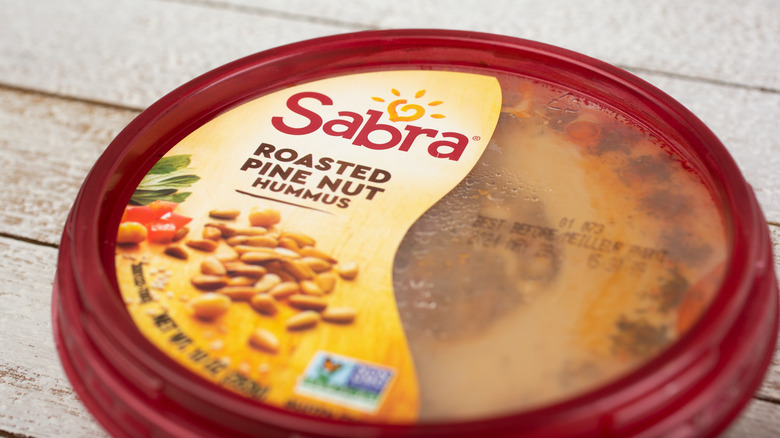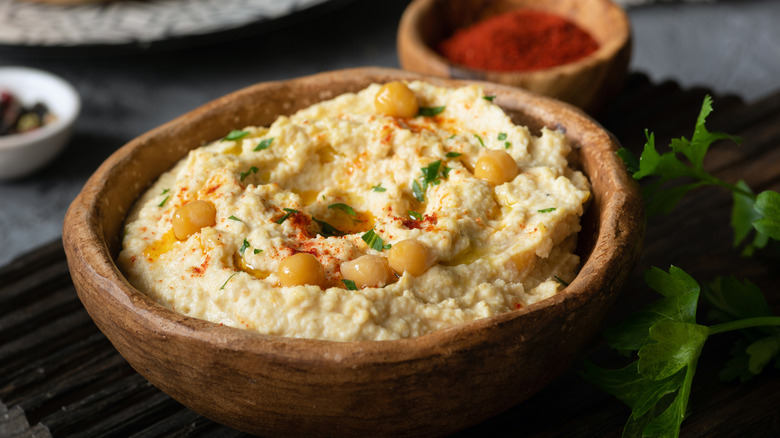Read This Before Eating Sabra Hummus
The health benefits of hummus are exceptional, but the popular Sabra brand leaves a lot to be desired, according to Eat This, Not That. This can leave health-conscious consumers thinking that their would-be nutritious snack is a lot better for them than it actually is.
When done right, nutrient-dense hummus helps increase much-needed levels of dietary fiber, and it has an array of vitamins, minerals, and polyunsaturated fatty acids, according to the National Library of Medicine. Chickpeas, the primary ingredient in hummus, are also associated with great insulin regulation, as well as weight management. This can't come soon enough in a society where people typically don't eat enough vegetables, and opt instead for high-fat foods with tons of calories and little nutritional value.
Sabra has a serious spread of hummus flavors, from classic to taco-inspired. There's even a dark chocolate dessert dip and spread! Turn the product over, however, and the findings get grim, according to Eat This, Not That. Unfortunately, buried deep in Sabra's labels are ingredients that anyone with a modicum of nutrition knowledge can quickly identify as being far less than ideal.
What's wrong with Sabra hummus?
Unlike homemade hummus, Sabra has a lot of preservatives to keep it fresher, longer. Some of these include locust bean gum, soybean oil, and citric acid. Those aren't associated with health issues, but potassium sorbate is. According to Eat This, Not That, it can cause stomach problems and migraines, which no one wants.
Sodium is another serious concern with Sabra hummus, as it packs much more than some competitor brands. This is a big deal because too much sodium is very bad for the heart and blood pressure. For reference, 2 tablespoons of Sabra hummus contains 130 milligrams of sodium, compared with more salt-conscious options, like Roots or Pita Pal. Those brands range between 65 and 80 milligrams of sodium, per Eat This, Not That.
Then, there's the ugly issue of fat content. Sabra's use of soybean oil means that it has more fat than recipes or brands that use olive oil. In fact, one serving of Sabra hummus runs 5 grams of fat, 1 gram of which is saturated fat, according to Eat This, Not That. Too much of this is bad for the belly, as well as the heart.
While there are healthier brands out there for purchase, homemade hummus is the clear superstar when it comes to controlling preservatives, sodium, and fat intake. So, next time you have a hankering for hummus, try to find a low-sodium recipe. Homemade hummus is easy to whip up and produces far more than the average Sabra container. Plus, you don't have to wonder about what's in it, which is always a good thing!

